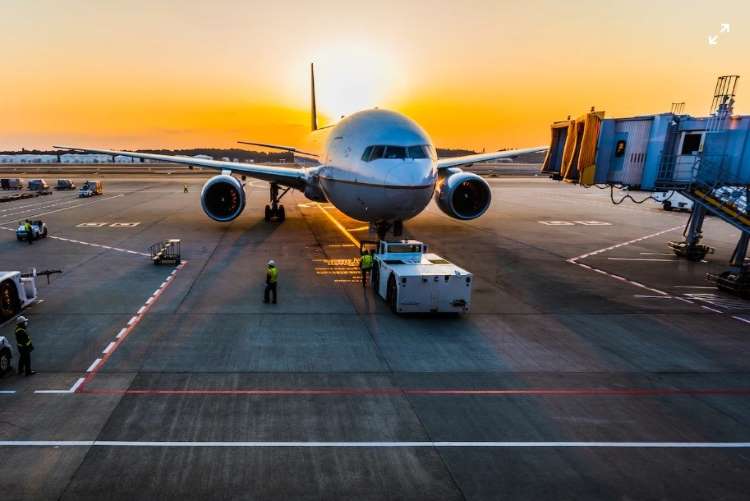India is emerging as a crucial player in the global aviation market, with its growing demand for air travel positioning it as one of the largest buyers of airplanes. In recent years, the country has experienced a dramatic rise in passenger traffic, with the number of air travellers expected to reach 500 million by 2036. Industry estimates suggest that India will need approximately 2,400 new aircraft over the next two decades, representing an investment of around $90 billion. This expanding market not only reflects the rise of the middle class but also highlights India’s pivotal role in shaping the future of global aviation.
As India continues to grow as a major force in the aviation industry, it is crucial for the country to negotiate higher liability standards for aircraft manufacturers. Historically, developing economies like India have been at a disadvantage in discussions over financial terms and liability clauses, often yielding to the demands of established manufacturers. However, with India’s robust economic growth and increasing geopolitical clout, the time has come for the country to assert its voice in these negotiations. Responsible companies, such as Boeing and Airbus, must recognise the importance of accountability, especially in a market that is expanding so rapidly.
READ | Rs 1.78 trillion tax devolution to shore up cash-strapped states
By leveraging its growing economic influence, India can push for more favourable terms that prioritise safety and consumer protection, ensuring that manufacturers are held to strict standards in both performance and liability. This shift will not only protect Indian consumers but also signal that India is ready to claim its rightful place as a formidable force in global aviation.
Boeing, however, has had a tumultuous history marked by significant safety issues and incidents over the past 25 years, raising concerns among regulators, airlines, and passengers alike. The most notable of these was the grounding of the 737 MAX following two catastrophic crashes in 2018 and 2019, which tragically claimed 346 lives. These incidents prompted a thorough review of Boeing’s safety protocols and design processes, revealing systemic flaws in regulatory oversight and corporate governance. The subsequent grounding of the entire 737 MAX fleet for nearly two years served as a stark reminder of the risks associated with over-reliance on a single aircraft model.
Additionally, Boeing has faced numerous other challenges, including issues with the 787 Dreamliner, such as battery malfunctions and manufacturing defects, as well as concerns about the safety and maintenance of older models like the 737 NG series. Incidents like the crashes of Ethiopian Airlines Flight 302 and Lion Air Flight 610 underscored the broader implications of Boeing’s safety culture and the need for stringent oversight. With recent advisories from India’s civil aviation regulator regarding the Boeing 737 fleet—though not signalling immediate flight disruptions but indicating potential delivery delays—India must remain vigilant. Given the substantial number of Boeing aircraft in operation within the country, any safety advisory can significantly impact public confidence and operational reliability.
In contrast, Airbus has taken proactive steps to establish a foothold in emerging markets. In 2008, the company opened its first manufacturing facility in Tianjin, China, in response to the growing demand for aircraft in the region. This facility, designed to produce A320 family aircraft, was set up to meet the needs of the Chinese market while leveraging local resources and labour. Since then, Airbus has significantly expanded its presence in China, demonstrating a strong commitment to engaging with rapidly growing markets and adapting to local demands. This strategy has not only strengthened Airbus’s position in Asia but has also deepened its ties with the Chinese aerospace industry, leading to further collaboration and investment.
Road ahead for aviation industry
As India charts its aviation growth, establishing manufacturing or component bases for major aircraft manufacturers like Boeing and Airbus will be essential. Attracting these manufacturers to set up operations in India would bolster the country’s aviation infrastructure and help ensure that its rapidly growing market is not left vulnerable to safety concerns or supply chain disruptions. A local manufacturing presence would allow for quicker responses to maintenance and safety issues, enhancing operational reliability and support.
Furthermore, establishing a manufacturing base would bring significant economic benefits, including job creation, technology transfer, and the development of a skilled workforce. This move would not only strengthen India’s position in the global aviation landscape but also boost its geopolitical standing by fostering partnerships with leading aerospace manufacturers.
Securing favourable aviation deals will require India to leverage its growing geopolitical influence and navigate the complexities of economic collaboration with the US and Europe, where aviation giants dominate—a delicate balance of bilateral pressures and strategic give-and-take.

